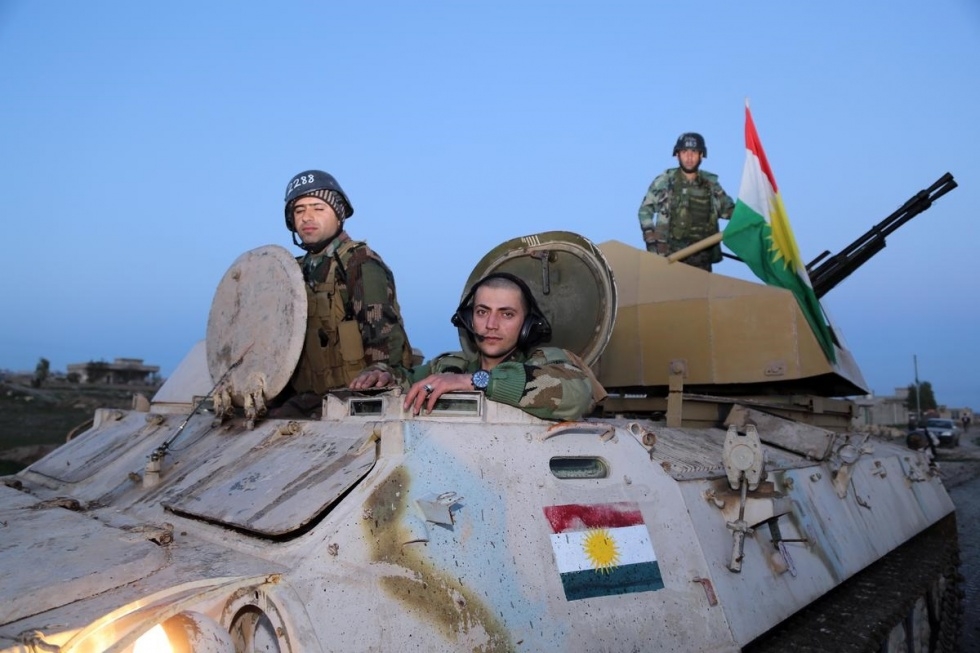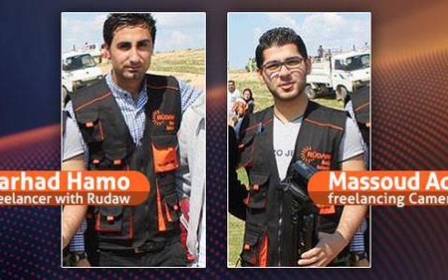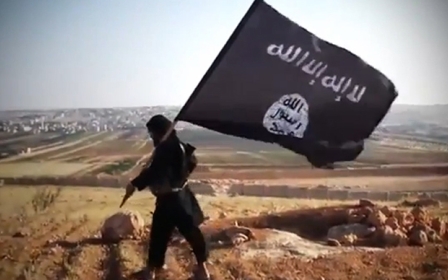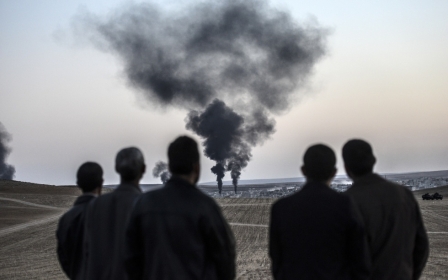Airstrikes kill IS leaders as US warns war will take 3 more years

Three leading Islamic State (IS) group commanders have been killed in the last two months, with the US making “significant progress” against the militants in Syria and Iraq, top American military leaders have said.
"I can confirm that since mid-November, targeted coalition airstrikes successfully killed multiple senior and mid-level leaders" in the IS, spokesperson Rear Admiral John Kirby said in a statement issued on Thursday.
"We believe that the loss of these key leaders degrades [IS’s] ability to command and control current operations against Iraqi Security Forces, including Kurdish and other local forces in Iraq," Kirby added.
The Wall Street Journal first reported that US forces had taken out several key leaders, quoting the military's top officer, General Martin Dempsey.
"These are high-value targets, senior leadership," Dempsey told the Journal.
Haji Mutazz, known as IS leader Abu Bakr al-Baghdadi's right-hand-man, was killed in early December as was Abd al-Basit, the head of military operations in Iraq. Mosul governor Radwin Talib was killed in November, the American newspaper reported.
However, Lieutenant General James Terry, the commander of the Combined Joint Task Force – Operation Inherent Resolve, who heads the US-led coalition against US, was quick to warn that while the mission was making “significant progress” it would be at least three years before a turning point against the militants was reached.
“That doesn't mean we haven't started turning Daesh in a certain direction,” he said using the Arabic acronym for IS while speaking to reporters at the Pentagon. “But I still think we're, in terms of building some of the capabilities that are required there, probably about three years down the road minimum.”
The group has been gaining serious ground in war-torn Syria since early last year, but it was its sweeping assault into Iraq - which saw IS seize vast swathes of the country including Iraq’s second city Mosul in a matter of days this June – that prompted the US to forge an international coalition against IS.
The first strikes began in Iraq on 8 August, and expanded to Syria on 23 September. They have been widely credited with helping to stem the militant tide, although Iraqi forces have made only limited territorial gains, despite widespread international support, and continue to lose ground in the restive Anbar province in south-western Iraq.
Terry lauded Iraqi government efforts to engage tribal leaders in the fight, saying that the efforts are "coming around, and we see more and more of it everyday".
"I see the current prime minister [Haider al-Abadi] at least moving in that direction and we'll continue to support them and encourage them to bring the rest of those that want to come to the side of the government of Iraq, support them to bring those around," he said.
Abadi’s predecessor Nouri al-Maliki was forced to step down in August due to international pressure and widespread accusations that he had fuelled sectarianism in the country and moved to disenfranchise Iraq’s Sunni community – a policy that has been blamed for the ferocity of the IS advance.
The dual announcements from the US came on the same day as large-scale Kurdish advances against IS positions in northern Iraq.
The two-day assault by Iraqi Kurdish fighters, known as the Peshmerga, who were flagged by American airstrikes, has helped open up central routes into mainland Iraq, near the Syria border.
Kurdish forces, backed by a surge of American airstrikes in recent days, recaptured a large swath of territory from IS militants on Thursday, opening a path from the autonomous Kurdish region to Mount Sinjar in the west, near the Syrian border.
The offensive, which involved 8,000 fighters, was the largest one to date in the war against IS, according to Kurdish officials. They said it was also a successful demonstration of President Obama’s strategy for battling the group: American air power combined with local forces doing the fighting on the ground.
A statement released late on Thursday by the office of Masrour Barzani, the head of the Kurdistan Regional Security Council, said that the drive was: “the single biggest military offensive against [Islamic State] and the most successful.”
New MEE newsletter: Jerusalem Dispatch
Sign up to get the latest insights and analysis on Israel-Palestine, alongside Turkey Unpacked and other MEE newsletters
Middle East Eye delivers independent and unrivalled coverage and analysis of the Middle East, North Africa and beyond. To learn more about republishing this content and the associated fees, please fill out this form. More about MEE can be found here.




